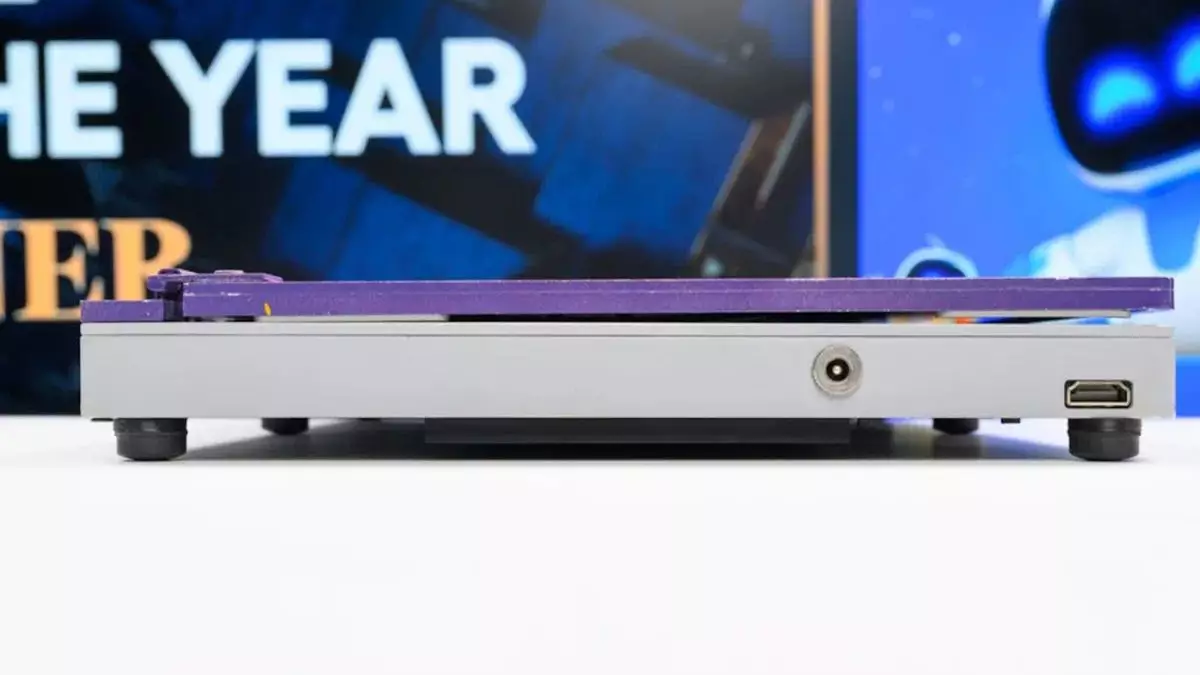In the world of gaming laptops, one would expect a certain degree of practicality, especially regarding portability and performance. Enter the BBook AI Original Edition, a peculiar creation that raises eyebrows and invites skepticism. With 3D-printed components, this contraption seems to defy the very essence of what a gaming laptop should embody.
The Dimensions That Define a New Category
At first glance, the BBook AI Original Edition is a behemoth. With a thickness of over 31 mm and a sizeable 17-inch screen, it possesses a form factor that aligns more closely with a desktop than a portable device. Weighing in at approximately 9.5 pounds (4.3 kg), this device can be classified as one of the heaviest “laptops” available, surpassing even the notorious MSI Titan 18 HX and the Gigabyte Aorus 17X, which are already cumbersome machines. This begs the question: is this really a laptop? Or is it a portable gaming behemoth that is uncomfortable to carry yet striking to observe?
What the BBook offers in size, it lacks in agility. The absence of a significant battery is a glaring oversight, transforming this device into something more akin to a stationary console than a true laptop. In a market increasingly dominated by handheld gaming devices and ultra-portable laptops, the BBook AI feels like a step back into a realm where weight and bulk took precedence over user experience.
The key selling point of any gaming laptop lies within its specifications, and here the BBook AI does not disappoint—at least on paper. Sporting a full-sized keyboard and a mesmerizing 4K IPS panel, the visual experience is presumably incredible. However, the screen’s refresh rate is limited to 60 Hz, a factor that could deter hardcore gamers who prioritize smooth gameplay over resolution.
The hardware inside is identical to the standard PlayStation 5. While that may excite PS5 fans, it raises questions about whether purchasing a dedicated device with identical specs justifies the price tag of approximately $2,748. For that price, prospective buyers would expect not just comparable performance but also significant advancements in design and functionality. Unfortunately, the BBook AI appears to lack both—a disappointing revelation for a concept that aims to innovate.
There’s another consideration for potential customers: the noise level. When operating at full capacity, the BBook AI emits a staggering 71.3 decibels of sound—similar to a loud hairdryer. This noise level poses a significant concern for those looking for a quiet gaming experience, particularly during late-night sessions. For gamers who live with roommates or family, this could be a massive deterrent. Ideally, gaming devices should aim for a balance between performance and discretion, something this particular model patently fails to do.
Despite its many shortcomings, the BBook AI Original Edition cannot be dismissed outright. It represents the creativity and passion of modding culture, showcasing the potential for mixing nostalgia with contemporary technology. However, one must ponder—at what cost? The artisan aspects cannot mask the practical failures of a device that purports to be a gaming laptop yet forgoes the very defining features, like mobility and convenience.
The BBook AI poses a paradox: it serves as an intriguing glimpse into the future of gaming devices yet emphasizes the critical need for balance in design. While it may attract attention and admiration for its aesthetics and uniqueness, the weight, noise, lack of battery, and price tag make it less than practical for truly portable gaming. This journey into the world of gaming laptops reveals a cautionary tale that highlights the importance of marrying creativity with function—an endeavor that, while commendable, still has a long way to go.

